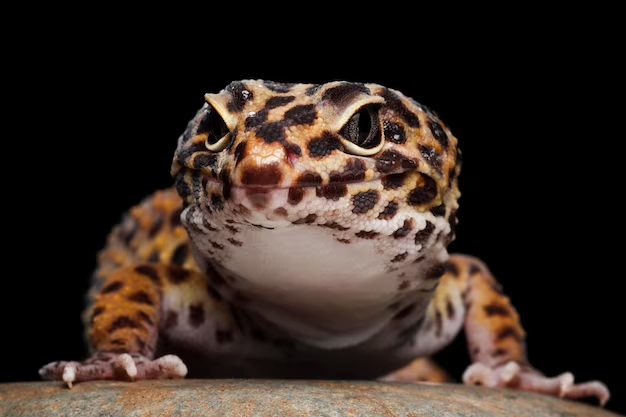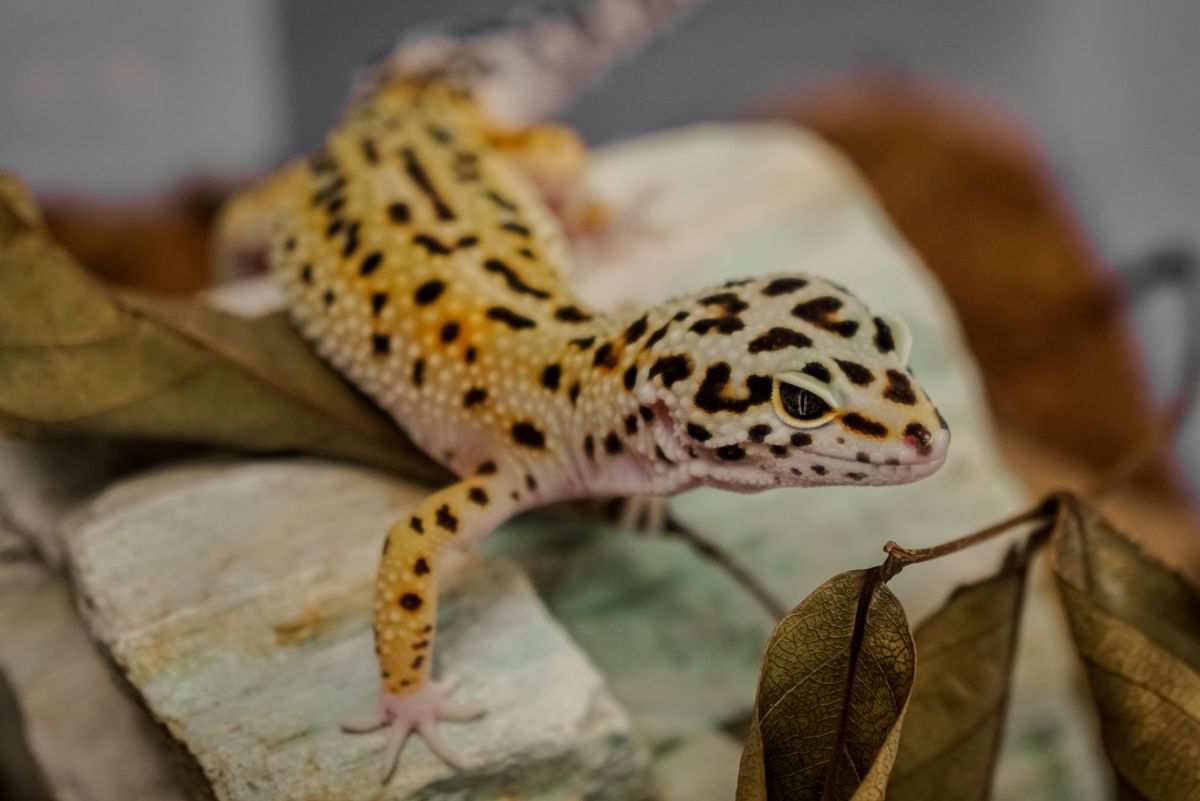
How Long Do Leopard Geckos Live?
If you are considering adopting or currently caring for leopard geckos as pets, this blog will help you understand important aspects including how long do leopard geckos live, their habitat requirements, factors influencing longevity, and tips for ensuring their well-being.
Where Do Leopard Geckos Live
Leopard geckos are small reptiles known for their distinctive spotted patterns and docile nature. They are typically found in the arid regions of Central Asia, including Afghanistan, Pakistan, and parts of India. In their natural habitat, leopard geckos seek shelter in crevices and rocky areas during the day to avoid the intense heat, emerging at night to hunt for insects.
How Long Do Leopard Geckos Live In Different Conditions
Just as humans are impacted by their environment, leopard geckos’ longevity can be influenced by different living conditions. Therefore, having this knowledge is crucial for ensuring the well-being and longevity of these pets.
What Is The Lifespan Of A Leopard Gecko In Normal Condition
In the wild, leopard gecko lifespan is typically about 6 to 8 years. This relatively shorter lifespan is largely influenced by factors such as predation, limited access to food sources, and the challenges of surviving in their natural environment. Despite their adaptability to desert conditions, leopard geckos face risks from predators such as birds, snakes, and larger mammals, which can significantly impact their longevity.
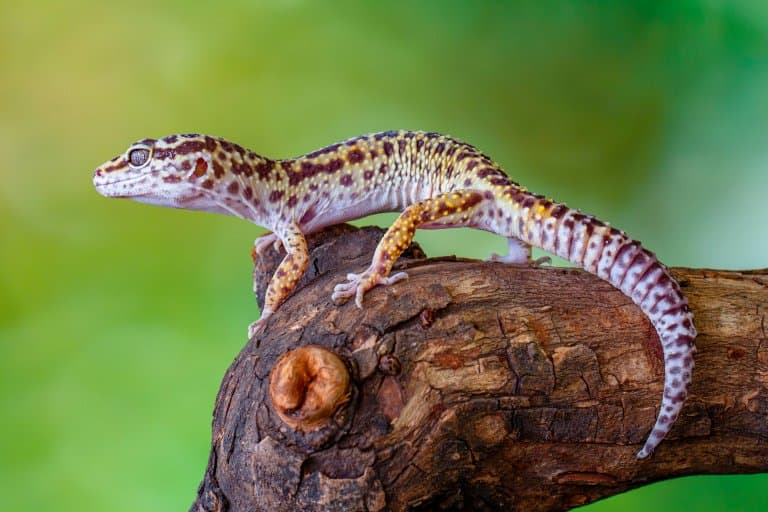
And how long do leopard geckos live as pets? They can live much longer, often reaching 10 to 20 years. The main reason is because of the controlled environment provided by pet owners, which includes stable temperatures, a consistent and nutritious diet, and protection from predators. Additionally, veterinary care, proper hygiene, and regular handling contribute to the overall well-being and longevity of captive leopard geckos.
How Long Do Leopard Geckos Live Without Food And Water
Leopard geckos can survive typically lasting around 2 weeks to a month without eating. However, their ability to survive without water is more limited, with most of them requiring water every few days to stay hydrated. In extreme conditions, such as during brumation (a hibernation-like state), leopard geckos may go without food or water for even longer periods, because they have stored fat reserves for energy.
How Long Can Leopard Geckos Survive In The Cold
Leopard geckos are cold-blooded reptiles that rely on the heat from external surroundings to regulate their body temperature. When the temperature drops low, their metabolism slows down, and they become lethargic, unable to move or hunt for food. In extreme cold conditions, it is hard to determine the exact length of how long do leopard geckos live. However, they may survive for only a few hours or days before succumbing to hypothermia or other related health issues.
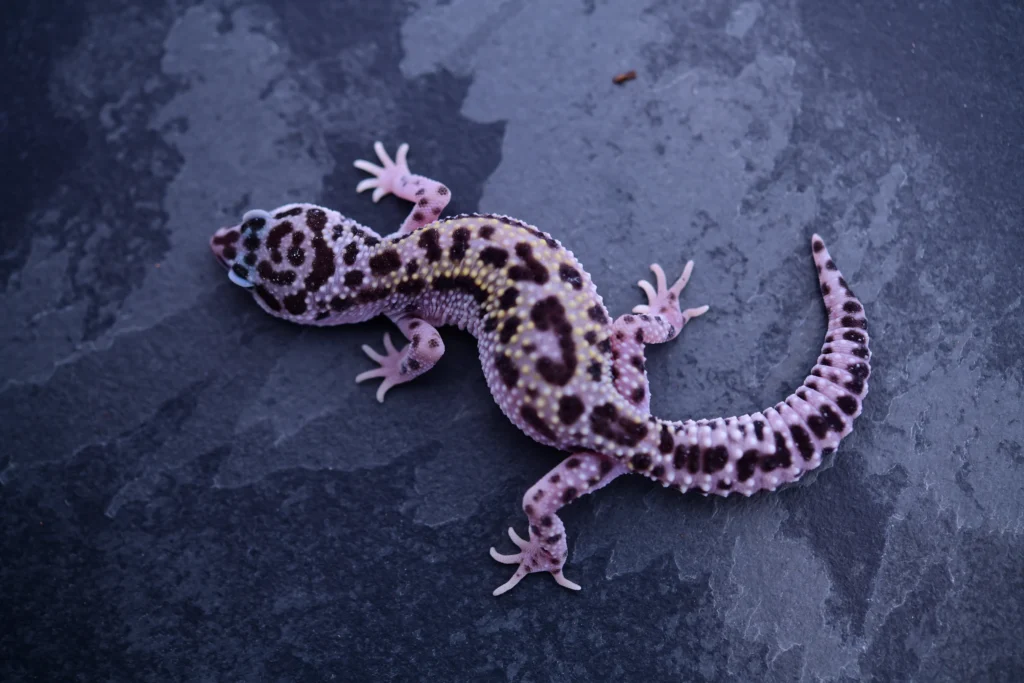
Therefore, maintaining appropriate temperatures for leopard geckos is essential. The temperature should be typically around 75 to 85 degrees Fahrenheit during the day and slightly cooler at night. Without adequate warmth, leopard geckos may struggle to regulate their body temperature which can shorten leopard gecko lifespan.
Factors Affecting a Leopard Gecko Lifespan
There are various factors that can influence how long can leopard geckos live. Understanding these factors will help you to provide proper pet care methods for your leopard geckos.
- Gender
There are differences in the lifespan of female and male leopard geckos. Typically, female leopard geckos tend to live longer than males. Some female leopard geckos’ ages can reach to 15 to 20 years or more, while males generally have a slightly shorter lifespan, around 10 to 15 years.
The main reason for the longer lifespan of leopard geckos is female, because they have to spend a considerable amount of energy into producing eggs and caring for offspring. In contrast, male leopard geckos do not have to go through this process, which makes their lifespan much shorter.
- Predation
How long do leopard geckos live can also be affected by predators such as owls and hawks, which hunt them from the air. Rat snakes and kingsnakes are also significant predators of leopard geckos, as they can easily locate and eat them on the ground.
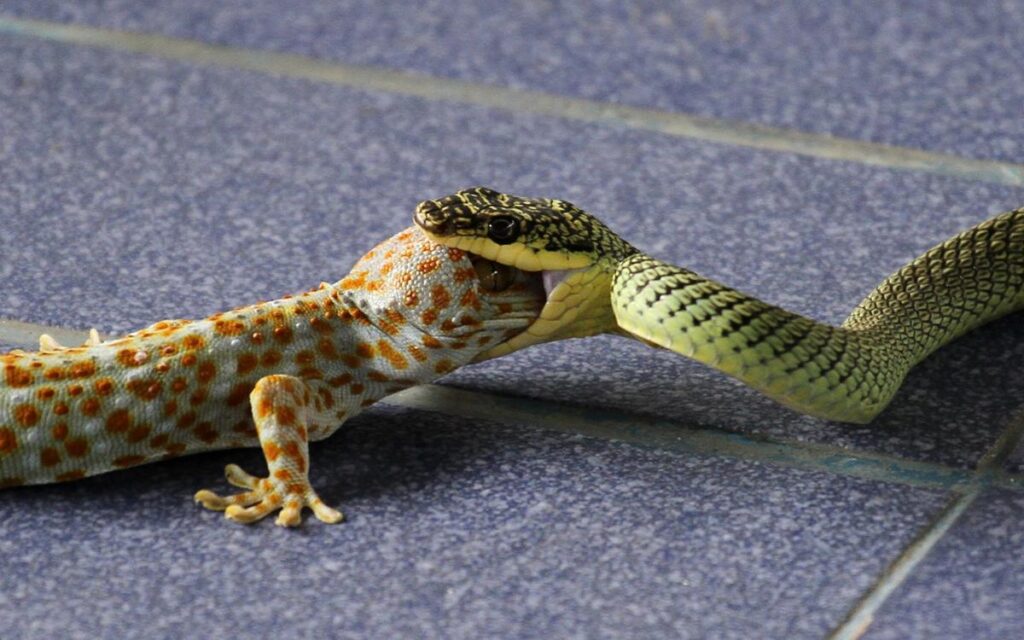
To survive from predation, leopard geckos rely on their sense of hearing and sight with camouflage abilities which allow them to quickly flee and blend into the surroundings. During the daytime, they seek refuge in underground holes and burrows to avoid the heat and hide from predators. While typically not vocal, leopard geckos may emit barks or squeaks when stressed, signaling potential danger and allowing them to alert nearby conspecifics or deter predators.
- Stress
When leopard geckos are stressed, it can lead to suppressed immune systems which cause more illnesses and diseases. Additionally, stress may also affect their eating habits and lead to reduced appetite, and in a severe situation it can cause death.
- Genetics
Although not widely discussed, genetics can have a great influence on the lifespan of leopard geckos. A leopard gecko with robust genetics possesses stronger immunity against diseases which facilitate quicker recovery from health issues and experiencing less stress during breeding. Conversely, a leopard gecko from a weaker bloodline may be more vulnerable to specific diseases and could struggle to recover from illnesses.
How To Keep Your Leopard Gecko Live Long?
If you want to know how long do leopard geckos live from 10 to 20 years, Lifestyle Blog will help you with these tips to bring a healthy life and proper care to your leopard gecko.
- Feed A Balanced And Varied Diet
Leopard gecko lifespan is affected by their diet and nutritious food will keep them alive. A mix of live insects such as crickets, mealworms, and dubia roaches is an ideal meal for leopard geckos, which can be supplemented with occasional treats like wax worms or silkworms to provide sufficient nutrients.
- Give A Balance Environment
You should ensure that their environment mimics the natural dessert. Leopard geckos require a warm side for basking and a cooler side for thermoregulation.
They also live in relatively low humidity environments, typically ranging between 30% to 40%. This level of humidity helps prevent dehydration and allows for proper shedding. However, it’s essential to provide a humid hide within 60% to 70%, to facilitate successful shedding.
Moreover, you can provide hiding spots, such as caves or shelters, which allows leopard geckos to feel secure and reduce stress.

- Appropriate Heating And Lighting
How long do leopard geckos live can also be affected by temperature and lighting because they require a warm environment to regulate their body temperature and digestion. Using a heat source such as an under-tank heater or heat lamp and maintaining temperatures between 75 to 85 degrees Fahrenheit during the day and slightly cooler at night.
Additionally, UVB lighting is essential for leopard geckos to metabolize calcium, promoting bone health and preventing metabolic bone disease.
- Take Care Of Them
Last but not least, taking care of your leopard gecko is crucial for ensuring they live a long and healthy life. It’s important to notice any signs of illness or distress to ensure they receive prompt veterinary care when needed. Be aware of losing appetite, lethargy, abnormal shedding, or changes in behavior, as these could indicate underlying health issues. Additionally, keep an eye on their weight and appearance, looking out for any unusual lumps, bumps, or injuries.
Conclusion
In conclusion, how long do leopard geckos live can be affected by various factors such as genetics, habitat conditions, and caring. Understanding these elements and providing proper attention to ensure your leopard gecko’s lifespan.



